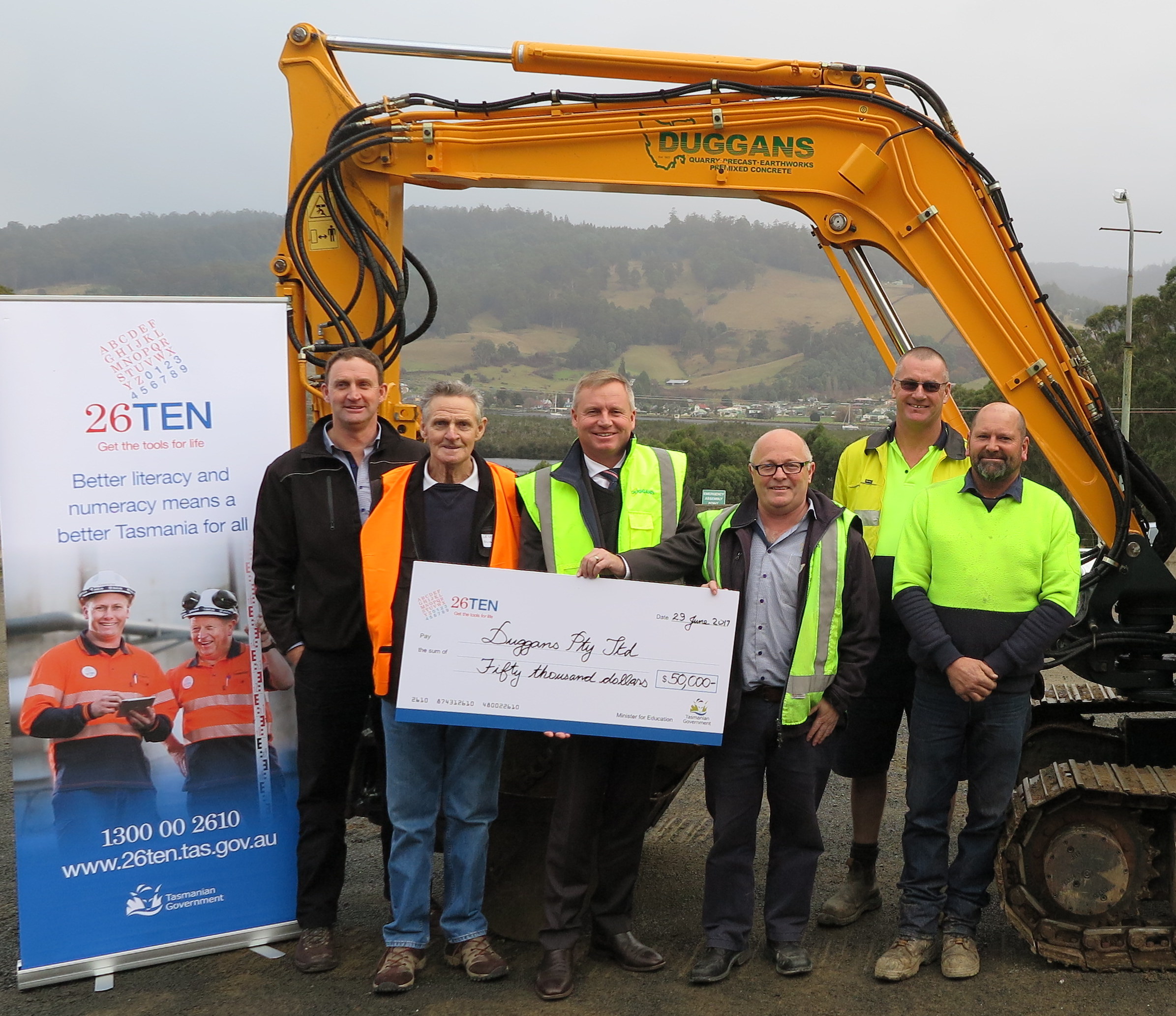
16 Nov Tasmanian precaster a force for change to boost digital literacy
As Australia’s economy continues to evolve towards the digital age, the demand for more sophisticated literacy and numeracy skills within the workforce is increasing.
The most recent international survey on these skills – the Programme for the International Assessment of Adult Competencies (PIAAC) – paints a bleak picture for Australia. The survey reveals that one in five Australians have literacy and/or numeracy skills that are below the minimum requirement to operate effectively in the workplace and in society.
This report echoes the persistent concern of the Australian Industry Group (Ai Group) about the low levels of literacy and numeracy in Australia, especially in the workforce. The Skilling the Existing Workforce, Final Project Report conducted by Ai Group reveals that 45% of survey respondents considered Australia’s labourers and process workers to be the largest occupational group affected by low levels of literacy and numeracy. Here, it stated that the most common problems include poor completion of workplace documents (42%), material errors and wastage (32%), along with teamwork and communication problems (28%).
INDUSTRY AND LITERACY GROUPS WORKING TOGETHER
As technology evolves, Australia’s low literacy and numeracy skills become a bigger issue. However, industry and literacy groups are now banding together to craft a strategy to address the problem.
26TEN is a network of organisations and individuals working together to improve adult literacy and numeracy in Tasmania. With an ambitious ten-year strategy to improve these skills, 26TEN supports the state’s workforce by offering workshops as well as Australian Core Skills Framework (ACSF) validation and moderation sessions.
26TEN offers grants for employers and peak bodies to run projects to improve the literacy and numeracy skills of Tasmanian workers. Here, the organisation funds people to work together in a coordinated way to lift these skills.
THE DUGGANS DIGITAL CONNECTIONS PROJECT
National Precast member and Cradoc-based company, Duggans, is just one company striving for a more skilled workforce within Australia’s construction sector.
Duggans recently completed the Duggans Civil Digital Connections project, which focused on upskilling the company’s civil and earthworks operators to use digital technology. Duggans’ General Manager, Brent Hardy, says this all began after a local Huon Valley 26TEN launch in 2017.
“I attended the launch and found out about a pilot project that aligned with our strategy. After having conversations with 26TEN – with the support of Hobart-based training organisation, Work & Training – we applied for a grant and were given $47,000 to fund a workplace trainer,” Mr Hardy details.
In turn, Duggans agreed to release the workforce for training, purchase fifteen iPads, and support the trainer and the process.
“The company is moving towards new systems with more efficient and electronic modes of documentation and communication. As a business, we were needing to come up with application technologies and from the workforce, we assumed that there would be people at different levels.”
UPSKILLED IN NO TIME
The project commenced in July 2017 and was completed in February 2018. It involved a trainer travelling to various Duggans’ worksites and teaching staff how to use tablets to complete digital forms, communicate job information, and document work processes.
“The idea was to teach staff how to use email, the internet, apps, and understand anti-virus. It then evolved to being able to use the tablets for timesheets, safe work method statements, pre-start checks, and so on,” Mr Hardy says.
Duggans’ Crusher Operator, Scott Phillips, says he was initially reluctant to start the training but was surprised at how simple the technology was to use.
“I didn’t want to know anything about it to start with. I had the idea that ‘I don’t need it, I only crush rock’ and when they put it to me, it was somewhat confronting,” Mr Phillips admits.
“Once you get through the basics and understand how it operates and how it fits in with the company, it all falls into place.”
TAKING THE SKILLS HOME
The mastery of digital skills is increasingly more important to meet the challenges of the evolving economy, both within and outside of the workplace.
“It’s not just about their reading and writing, but it’s also about their digital skills. Often, the older generations have never used computers or email systems, let alone a portable tablet,” Mr Hardy explains.
“By not having those skills, people aren’t able to fulfil their potential or even their basic needs going into the future. These may include pension forms, or even booking doctors’ appointments.”
Staff were supplied with an iPad each and were taught how to complete personal tasks such as their online banking and browse Gumtree. Here, they were given the opportunity to become more comfortable with the device and were able to gain ownership of it.
“In my personal life, with the iPad, I actually bought a tractor from Melbourne via Gumtree,” Mr Phillips says.
INDUSTRY AS A VEHICLE FOR CHANGE
Inadequate levels of workplace literacy and numeracy are having negative impacts on productivity and workplace safety. In the Ai Group’s survey, 38% of respondents saw a role for employers to improve workforce literacy and numeracy skills. This is exactly the action that Duggans has taken.
Mr Hardy believes that using industry as a vehicle to improve the underlying knowledge, skills, and understanding of staff is a way of making a significant difference.
“Industry will generally be prepared to pay for training—whether it’s time off to do it or paying a trainer. Even if it’s not directly work-related, it will certainly be esteem-related and that in itself has positive flow-on effects for the business,” Mr Hardy says.
“The digital revolution really has only just started in our business and if you look at what other companies have—such as vehicle tracking and scanning of information—then the sky’s the limit.”


